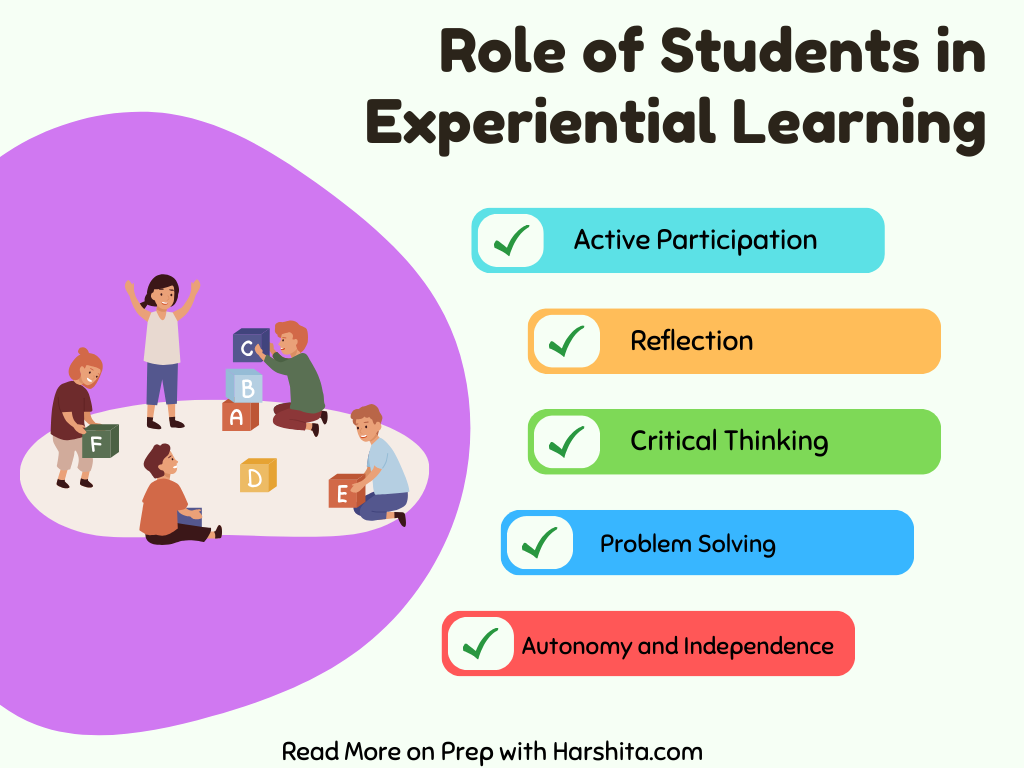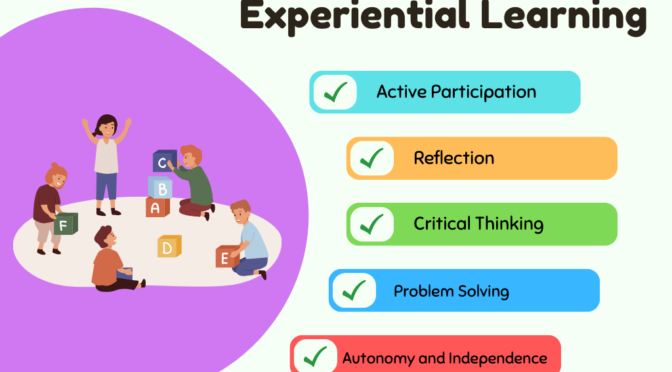Critical Thinking: Experiential learning encourages students to think critically about the information they encounter and the experiences they undergo. They analyze, evaluate, and draw conclusions based on their observations and experiences.
Problem-solving: Students often encounter real-world problems or challenges within experiential learning activities. They are tasked with finding solutions, either individually or collaboratively, which develops their problem-solving skills and ability to apply knowledge in practical situations.
Collaboration and Communication: Experiential learning often involves collaborative projects or group activities. Students work together, communicate ideas, share perspectives, and learn from each other’s experiences. This build teamwork and interpersonal skills.
Autonomy and Independence: Experiential learning empowers students to take ownership of their learning process. They have the autonomy to explore topics of interest, make decisions, and manage their learning journey, which promotes self-directed learning skills.
Application of Knowledge: Experiential learning emphasizes the application of knowledge in real-world contexts. Students have the opportunity to apply theoretical concepts learned in the classroom to practical situations, reinforcing their understanding and relevance.
Adaptability: Through experiential learning, students often encounter unpredictable situations or outcomes. This requires them to adapt, think on their feet, and adjust their approaches accordingly, which builds resilience and adaptability skills.
Also Read: Role of Teacher in Experiential Learning



GLOBAL BUSINESS ELITE YOUR WHOLESALE SUPPLIER OF AGRICULTURAL AND INDUSTRIAL COMMODITIES
We are a global company providing food, ingredients, agricultural solutions and industrial products that are vital for living. We connect farmers with markets so they can prosper. We connect customers with ingredients so they can make meals people love. And we connect families with daily essentials from eggs to edible oils, salt to skincare, feed to alternative fuel. https://globalbusinessltd.co.uk/
Global business elite
copper cathode
aluminium wire scrap
scrap processor
scrap cpus
waste paper scrap
fridge compressor scrap
cable scrap
scrap copper wire
waste paper for sale
ceramic cpu scrap
icumsa 100
cpu scrap
wholesale sugar suppliers uk
scrap processor
scrap central processing units
occ paper scrap
occ waste paper scrap
nut prosper globe
ocopper cathode specifications
sachet water filling and sealing machine
insulated copper wire scrap
waste paper supplier
recycled copper wire
copper scrap wire
occ waste paper suppliers in uk
processor gold recovery
waste paper supplier
ccopper wire scrap millberry
Make money online with online slot games SABAI99 There are many techniques to generate income online สล็อตเว็บตรง
But PGSLOT is widely talked about. website
Because some people use it well and some don’t. สล็อตวอเลท
But in reality, there are many factors involved in addition to the techniques for making money in these online casino games. here
We haven’t included factors like stars and playing habits. click
Because if we talk about them all together The story will not end. slot
And another technique that anyone can practice and get the best results is the money management technique. สล็อตออนไลน์
We have compiled this article about this. check
If you are ready Go see now If you like Register as a member of our slot game website wm787play
wm787play.xyz And receive a free PG bonus credit And win the jackpot in the SLOTONLINE game on our website Make money with SABAI99